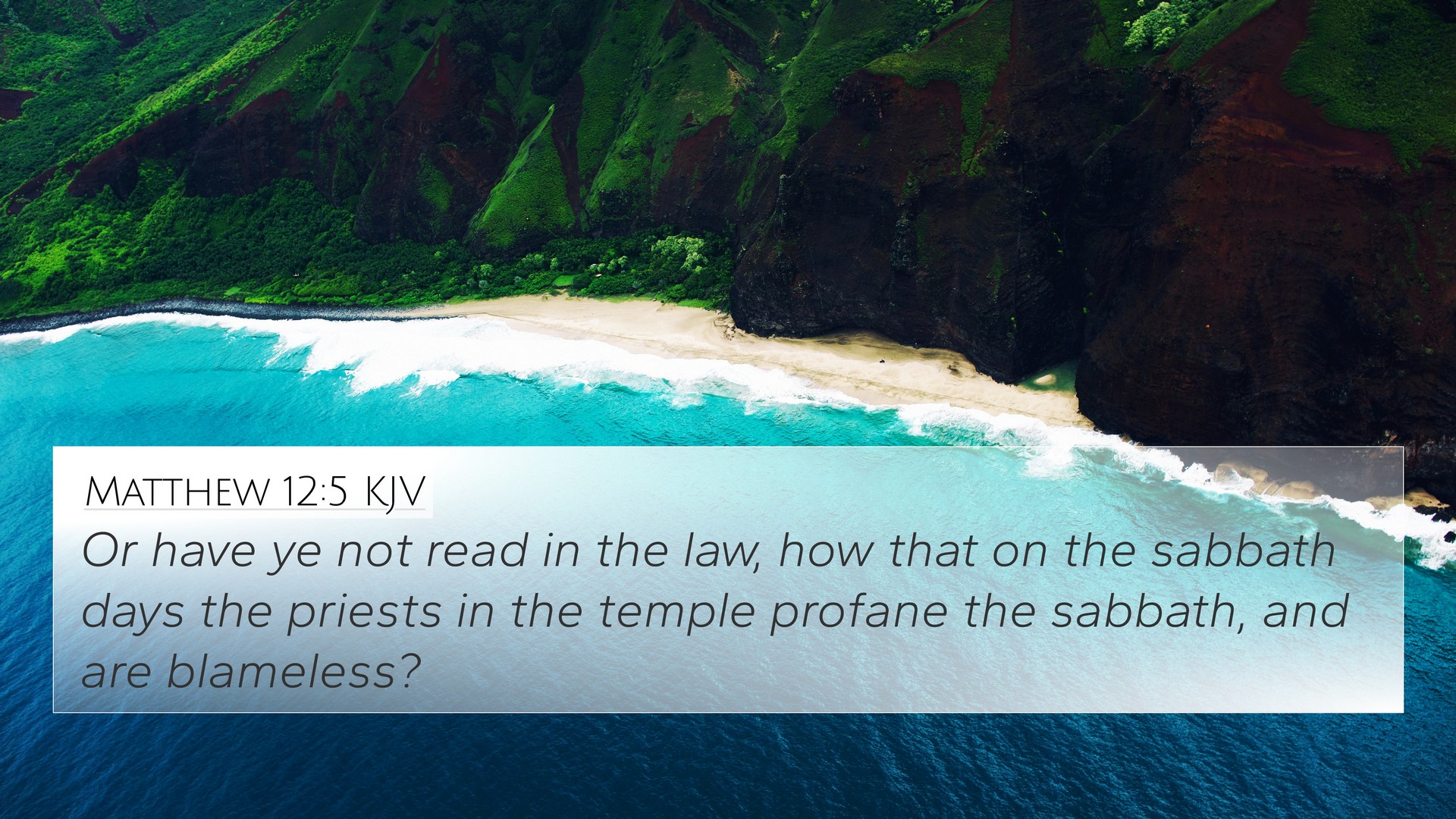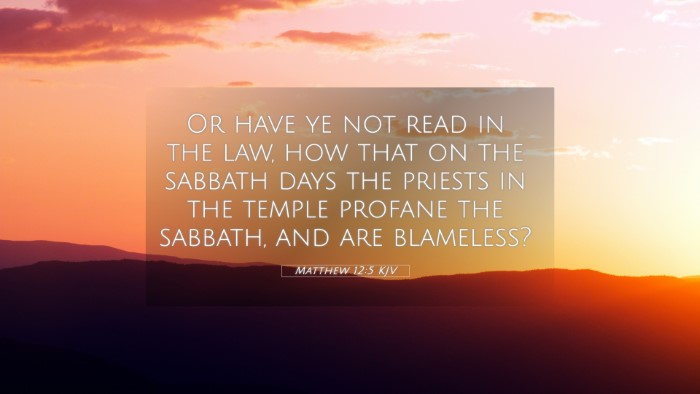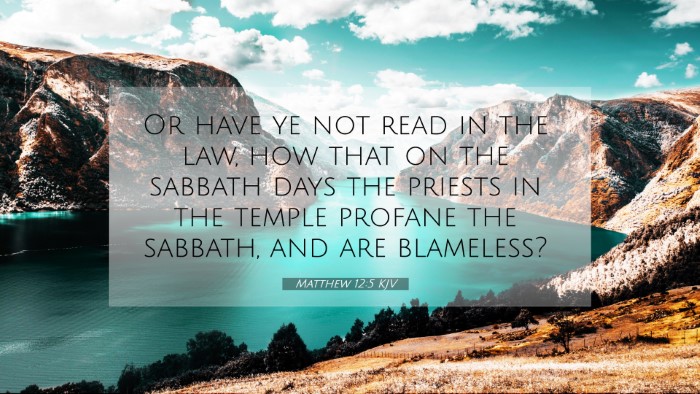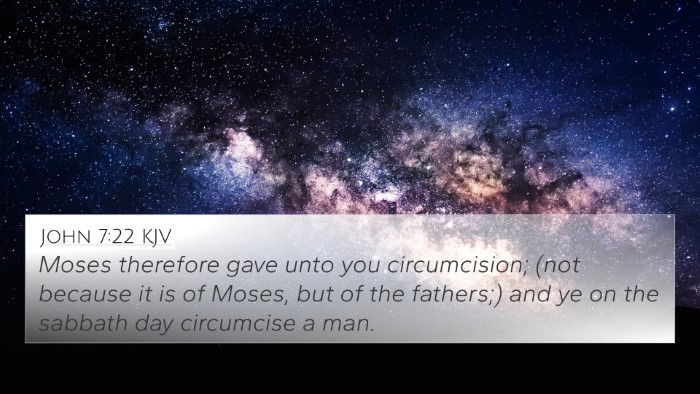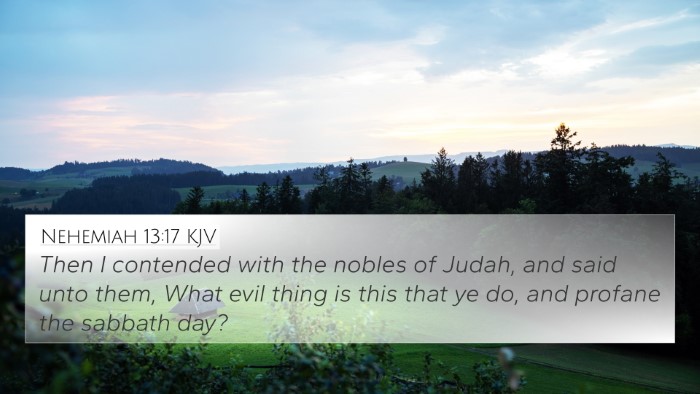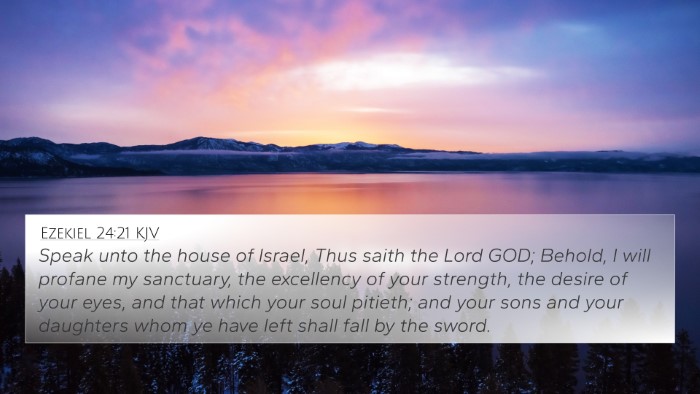Understanding Matthew 12:5
Bible Verse: Matthew 12:5 - "Or have you not read in the law that on the Sabbath the priests in the temple desecrate the Sabbath and are innocent?"
Meaning and Commentary Overview
Matthew 12:5 addresses Jesus’ teachings regarding the observance of the Sabbath, highlighting the contrast between strict legalism and the needs of humanity. This verse emphasizes the role of the priests in the temple and their actions on the Sabbath, suggesting that their duties necessitate certain exceptions to the rules regarding rest. Below, we explore this verse with insights from well-known public domain commentaries.
Commentary Insights
-
Matthew Henry:
Henry explains that the priests, due to their sacred duties, are allowed to violate the Sabbath rest without any guilt. This suggests that obligations to God can supersede the restrictions imposed by humans on holy days. He emphasizes the significance of mercy and necessity over blind adherence to laws.
-
Albert Barnes:
Barnes notes that this reference serves to illustrate the hypocrisy of the Pharisees, who criticized the disciples for actions he deemed innocent in comparison. He asserts that the spiritual needs of people often take precedence over ceremonial law, which echoes the teachings of Jesus concerning love and mercy.
-
Adam Clarke:
Clarke highlights how Jesus uses scriptural references to defend His disciples’ behavior. He suggests that the law’s intention was never to bring harm but to highlight the mercy and compassion of God. Clarke suggests that this defense illustrates the true spirit of the law, focusing on love and empathy over rigid rule-keeping.
Bible Verse Cross-References
This verse relates to several other passages within the Bible that further illuminate its meaning:
- Exodus 20:8-11: The commandment regarding the Sabbath and the call to keep it holy.
- Numbers 28:9-10: Guidelines for offerings and the priestly duties on the Sabbath.
- Luke 14:5: Jesus’ teaching about caring for a sheep that falls in a pit on the Sabbath.
- John 7:22-23: Discussion on circumcision and arguing the necessity over the Sabbath rest.
- 1 Samuel 21:6: How David and his men ate the sacred bread for survival, breaking the law with divine approval.
- Mark 2:27: Clarification that the Sabbath was made for man, not man for the Sabbath.
- Hosea 6:6: God’s desire for mercy over sacrifice, emphasizing the relational aspect of worship.
- Colossians 2:16-17: Context of the Sabbath and how it relates to the New Covenant community.
- Matthew 5:17-18: Jesus’ affirmation that He came to fulfill the law, not to abolish it.
- Mark 3:4: Jesus asks what is lawful on the Sabbath, emphasizing the need to do good.
Thematic Connections and Interpretations
This analysis of Matthew 12:5 reveals the broader themes of law versus mercy, the nature and intention of divine commandments, and the importance of human need over ritualistic observance. These themes represent key aspects of inter-Biblical dialogue where Jesus reinterprets Jewish law, bringing forward the underlying principles of love, compassion, and necessity.
Conclusion
In conclusion, Matthew 12:5 serves as a critical reminder of the necessity to reflect on the intent of the law rather than mere compliance. Jesus points out that our understanding of the Scriptures must account for human need, reinforcing the idea that God values mercy above sacrifice. In the exploration of Biblical cross-references, one uncovers nuanced teachings that reveal the interconnectedness of scriptural themes.
Tools for Further Study
Utilizing tools for Bible cross-referencing can deepen your understanding of themes throughout Scripture. Additionally, resources such as a Bible concordance or a Bible cross-reference guide can aid in exploring connections between verses.
